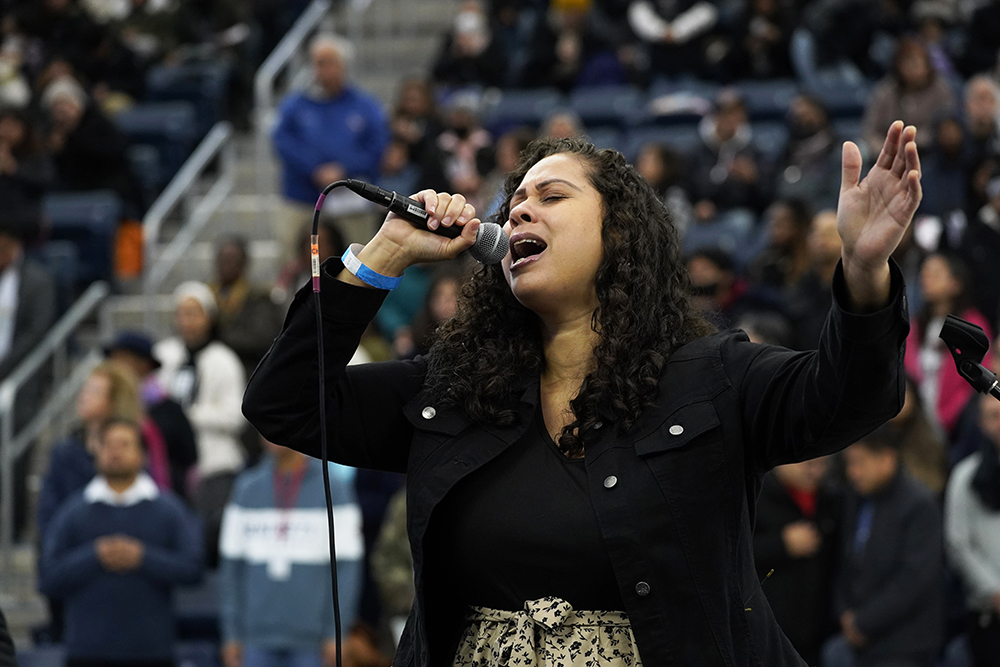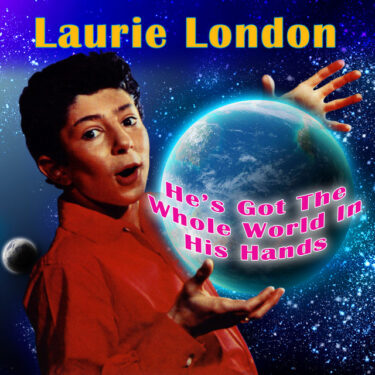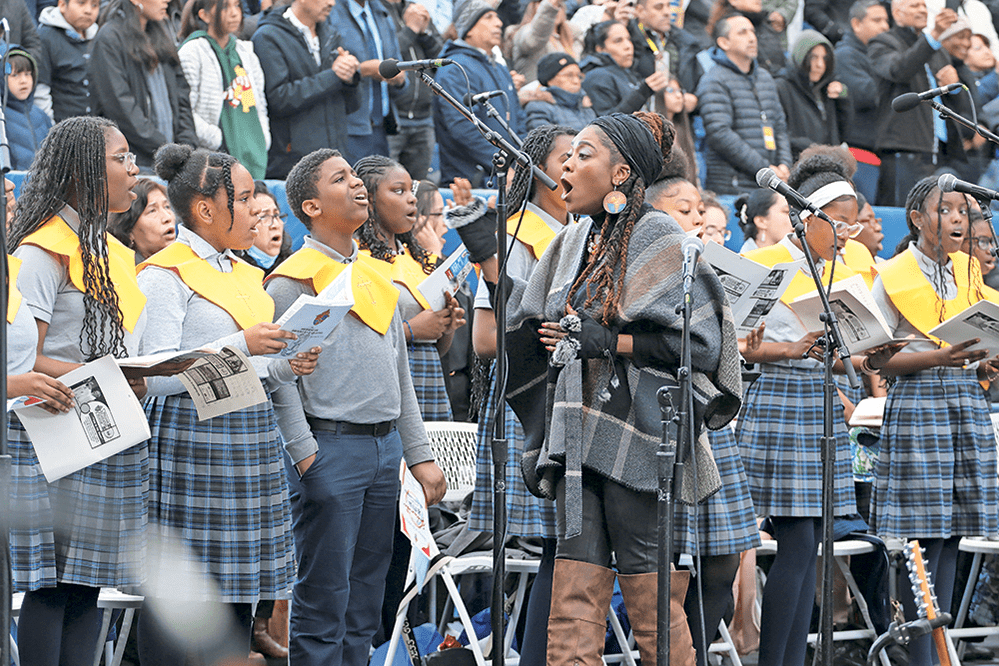
Among the many sacred and solemn songs heard at the recent Diocesan Eucharistic Revival at Louis Armstrong Stadium in Queens were some more familiar and popular selections such as “This Little Light of Mine” and “He’s Got the Whole World in His Hands,” performed by a choir under the direction of Joseph Murray, co-director of music ministry at St. Martin de Porres Parish in Bedford-Stuyvesant.
Sprinkled among the more sacred selections, these two African American hymns have roots that stretch back to the 1920s. They have also attracted a popular audience through hundreds of recordings by artists since the early 20th century, appeared on the pop charts, and have been sung in church services for nearly 100 years.
So, it’s fitting that these songs were as integral a part of the April 20th Eucharistic Revival as they are when performed at faith-defining music ministries in churches of various denominations.

According to Father Alonso Cox, pastor of St. Martin de Porres and coordinator for the Vicariate Office of Black Catholic Concerns for the Diocese of Brooklyn, the songs were carefully curated for the Eucharistic Revival to reflect music of the various cultures within the diocese.
“The one thing that Bishop Brennan had really impressed upon the (organizing) community was that there must be a clear reflection of who we are as a diocese and that reflection also extended to the music. In working with the diocesean music team, we were able to come up with a selection of hymns that were a reflection of the cultures of the diocese, including these African American hymns,” explained Father Cox.
Over the years, “This Little Light of Mine” has been used as everything from a lullaby to a civil rights anthem. In fact, the song was adopted by the Civil Rights Movement as a song of resistance, thanks to its hopeful lyrics that served as an anthem for strength and unity, and freedom from oppression.
The lyric for “This Little Light of Mine” echoes the biblical passage from Matthew 5:14-16, where Jesus says, “You are the light of the world. … Your light must shine before others, that they may see your good deeds and glorify your heavenly Father.”
While the origin of the African American spiritual is unknown, the title phrase was published in a 1925 poetry book by Edward G. Ivins, a writer from Montana. Then in 1933, the song was mentioned in newspapers as being sung at an African Methodist Episcopal conference in Montana.
The first popular rendition of the hymn was sung by Sister Rosetta Tharpe in 1960. Prior to that it had been secularized as “This Little Girl of Mine,” by Ray Charles in 1956 and later by The Everly Brothers.
The original hymn was recorded by The Kingston Trio in 1962 and The Seekers and Sam Cooke in 1964. More recently, Bruce Springsteen included a rousing rendition of the song on his 2007 “Live in Dublin” album performed along with an African American gospel choir.
Father Cox believes the song is especially meaningful during the Easter season. “We reflect upon Jesus as the light of the world, the Easter candle and ‘This Little Light of Mine’ is a beautiful hymn that really reflects upon who Christ is as the light in our lives and the light in our world that illuminates the darkness and continues to dispel the darkness in this world and to allow the light of Christ to continue to shine through us to others.”

“He’s Got the Whole World in His Hands” is another traditional African American spiritual. It was the first gospel hymn to reach No. 1 on the Billboard pop chart in 1958 when 14 year-old English singer Laurie London made it one of the biggest and best-selling gospel hits of all time.
The song has been recorded by iconic artists in all genres of music including legendary gospel great Mahalia Jackson — whose version made it to No. 69 on the pop chart in 1958 — opera singer Marian Anderson, Kate Smith, Judy Garland, Nina Simone, Perry Como, Andy Williams, and country artists including Glen Campbell, Bobby Bare, and Randy Travis.
“The whole world is in the hands of God our creator,” said Father Cox. “And we have a heavenly father who doesn’t look at color or background or where we’re from. We are all brothers and sisters united in the great love that God has for us.”
